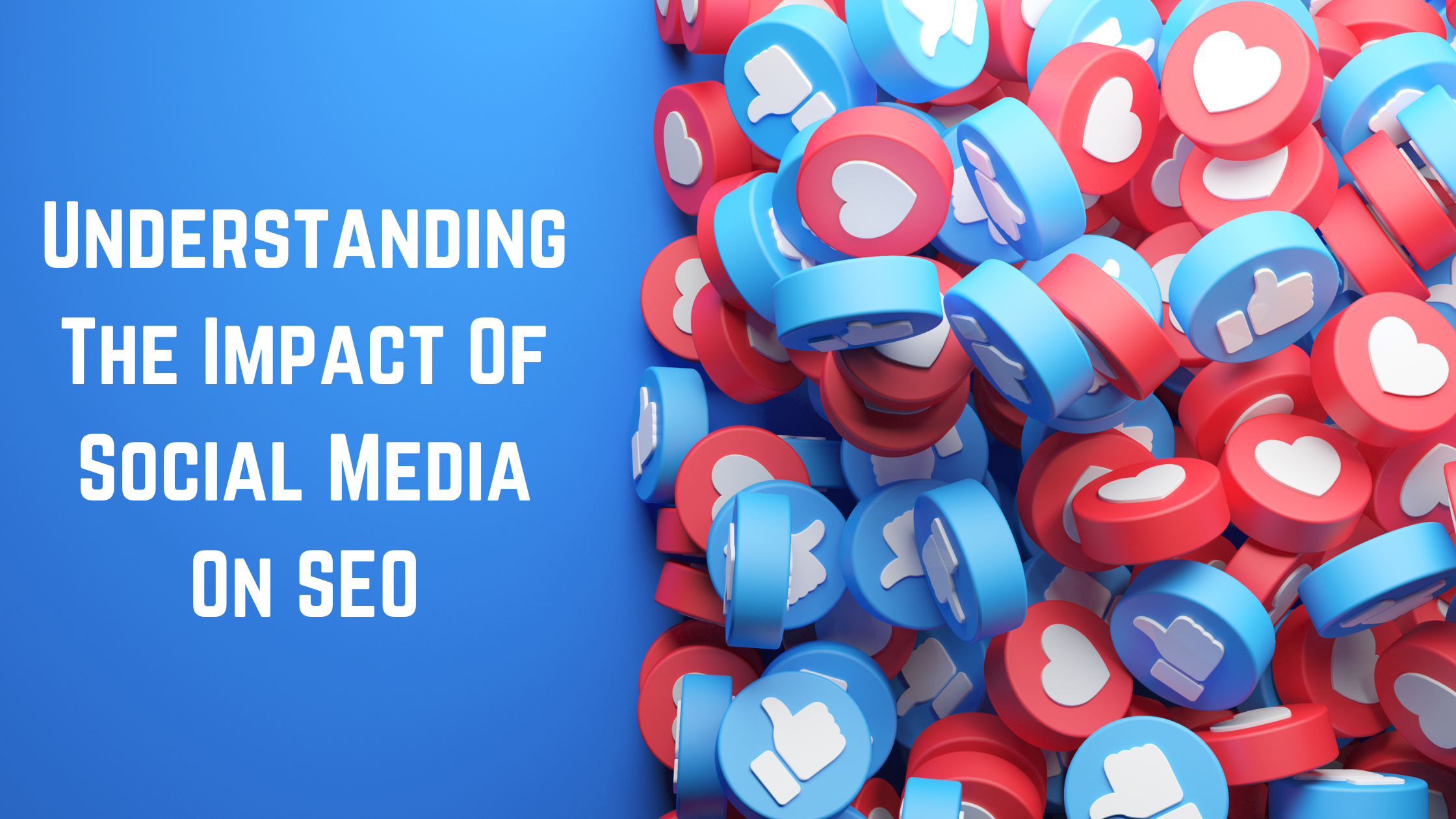Content is fire, social media is gasoline.
Jay Baer
Contrary to infamous belief, social media does impact Search Engine optimization efforts or SEO. It does entail factors that affect the rankings of a website. In this blog, let’s look at how social media should always be an ally to complement SEO activities.
Two Inseparable Allies – Social Media And SEO
Social media and SEO are interrelated and can complement each other in several ways. Here’s how social media can impact SEO:
1) Increased Website Visibility:
Sharing your website content on social media platforms can expand its reach and visibility. When your content gets shared, liked, or commented on, it increases the chances of attracting backlinks and driving referral traffic to your website, which can positively impact your SEO.
2) Social Signals:
While the direct impact of social signals on SEO is still debated, there is evidence to suggest that social media activity can indirectly influence search engine rankings. Engaging and popular content on social media can lead to increased brand visibility, more brand searches, and improved user engagement, which can positively affect your organic search rankings.
3) Brand Building And Authority:
Social media platforms provide opportunities to build your brand’s online presence and establish authority in your industry. By consistently sharing valuable content and engaging with your audience, you can build a loyal following, gain credibility, and enhance your brand reputation. This, in turn, can lead to more brand searches and improved organic search performance.

4) Content Distribution And Link Building:
Social media platforms provide a convenient way to distribute your content to a wider audience. When your content gets shared or linked to from social media, it increases the likelihood of attracting backlinks from other websites. Quality backlinks are an important factor in SEO, as they signal to search engines that your content is valuable and trustworthy.
5) Social Media Profiles In Search Results:
Social media profiles often rank high in search engine results for brand-related queries. Having optimized and active social media profiles can help you occupy more real estate in the search results, pushing down potential negative or irrelevant results and enhancing your online reputation.
6) User Engagement And Feedback:
Management of Social media allows you to engage directly with your audience, receive feedback, and address customer concerns. By actively listening and responding to your audience’s needs and preferences, you can gather valuable insights to inform your SEO strategy and content creation efforts.
It’s important to note that social media signals are not direct ranking factors for search engines like Google. However, the indirect impact and synergy between social media and SEO can significantly benefit your overall online presence, brand visibility, and organic search performance.
9 Steps To Use Social Media To Help Your Website Rank Organically
To use social media effectively to benefit SEO, consider implementing the following strategies:
1) Share And Promote Your Content:
Share your website content, including blog posts, articles, product pages, and landing pages, on your social media channels. Craft engaging captions that entice users to click through and read your content. By increasing visibility and driving traffic to your website, you create opportunities for engagement, backlinks, and improved SEO.
2) Optimize Your Social Profiles:
Optimize your social media profiles to align with your brand and include relevant keywords. Use your brand name or relevant keywords in your profile names, usernames, and bios. This can improve the chances of your social profiles appearing in search engine results when users search for your brand or related terms.
3) Encourage Social Sharing:
Add social sharing buttons to your website content to make it easy for visitors to share your content on their social media profiles. When others share your content, it can amplify its reach, increase brand visibility, and potentially attract backlinks from other websites.
4) Engage With Your Audience:
Actively engage with your social media audience by responding to comments, answering questions, and participating in discussions. Engaging with your audience not only builds relationships but also encourages social media users to visit your website and potentially share your content, leading to increased visibility and potential SEO benefits.
5) Build Relationships With Influencers:
Identify influencers or thought leaders in your industry and engage with them on social media. By building relationships with influencers, you may gain opportunities for guest posting, collaborations, or mentions on their platforms. This can lead to increased visibility, referral traffic, and potential backlinks, all of which can positively impact your SEO.

6) Utilize Hashtags:
Research and use relevant hashtags in your social media posts. Hashtags make your content discoverable by users interested in specific topics or keywords. They can help expand your reach, attract new followers, and increase the chances of your content being shared, thereby enhancing SEO potential.
7) Monitor And Respond To Mentions:
Monitor social media platforms for mentions of your brand or relevant keywords. Respond promptly to both positive and negative mentions to address customer concerns and maintain a positive brand image. Engaging with mentions can also lead to increased visibility and potential opportunities for user-generated content or partnerships.
8) Leverage Social Media For Link Building:
Engage with bloggers, industry publications, and websites in your niche through social media. Share their content, provide thoughtful comments, or contribute to discussions. Building relationships with relevant websites can increase the likelihood of earning backlinks and mentions, which can boost your SEO efforts.
9) Leverage Social Media For Local SEO:
If you have a local business, optimize your social media profiles for local SEO. Include your address, phone number, and business hours on your profiles. Encourage customers to leave reviews on your social media platforms, as positive reviews can contribute to your local SEO rankings.
Remember to track and analyze your social media efforts using analytics tools provided by each platform. Assess the engagement, reach, and referral traffic from social media to understand which strategies are most effective for your SEO goals. By integrating social media into your overall SEO strategy, you can enhance brand visibility, drive website traffic, and potentially improve search engine rankings.





